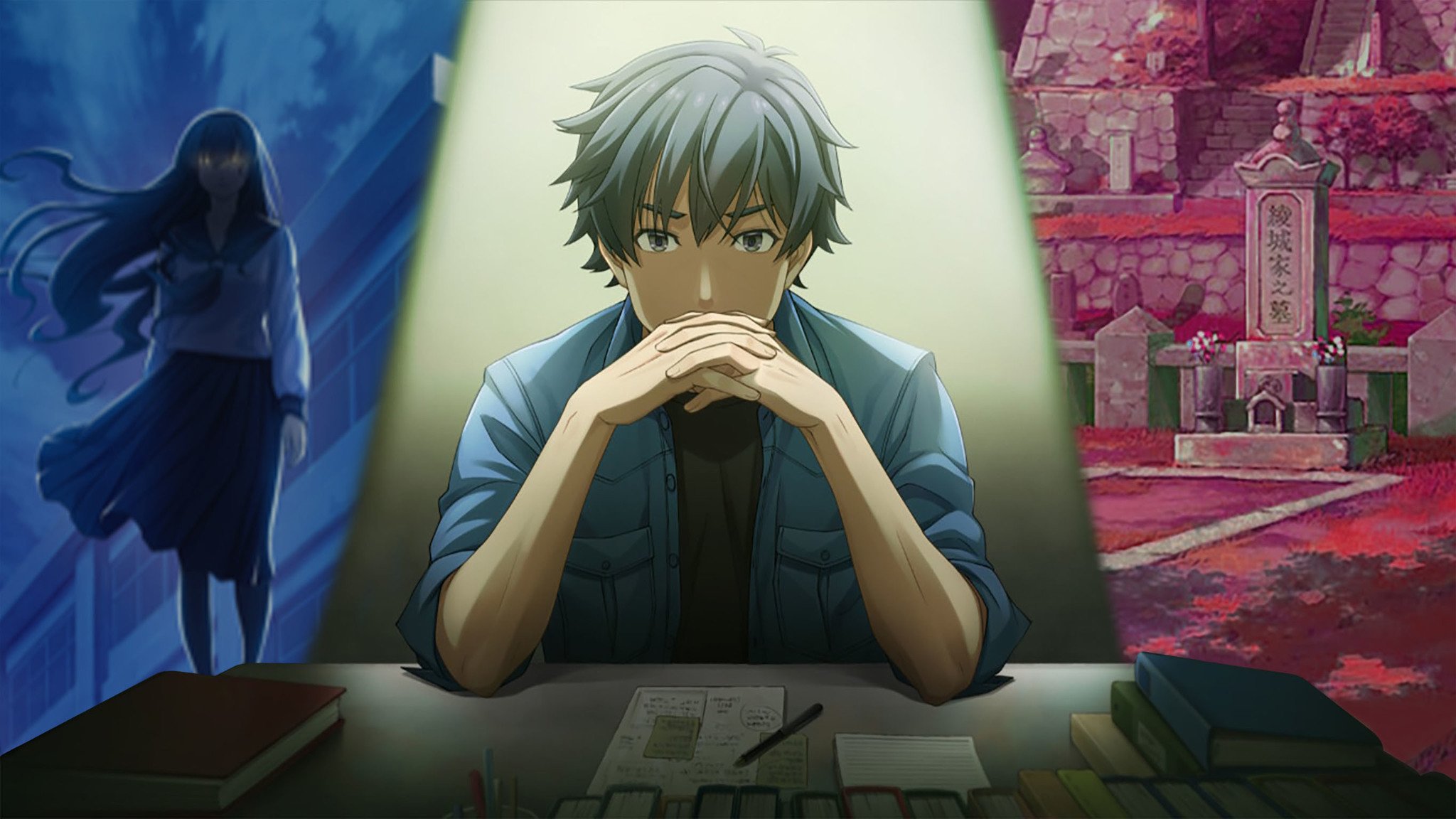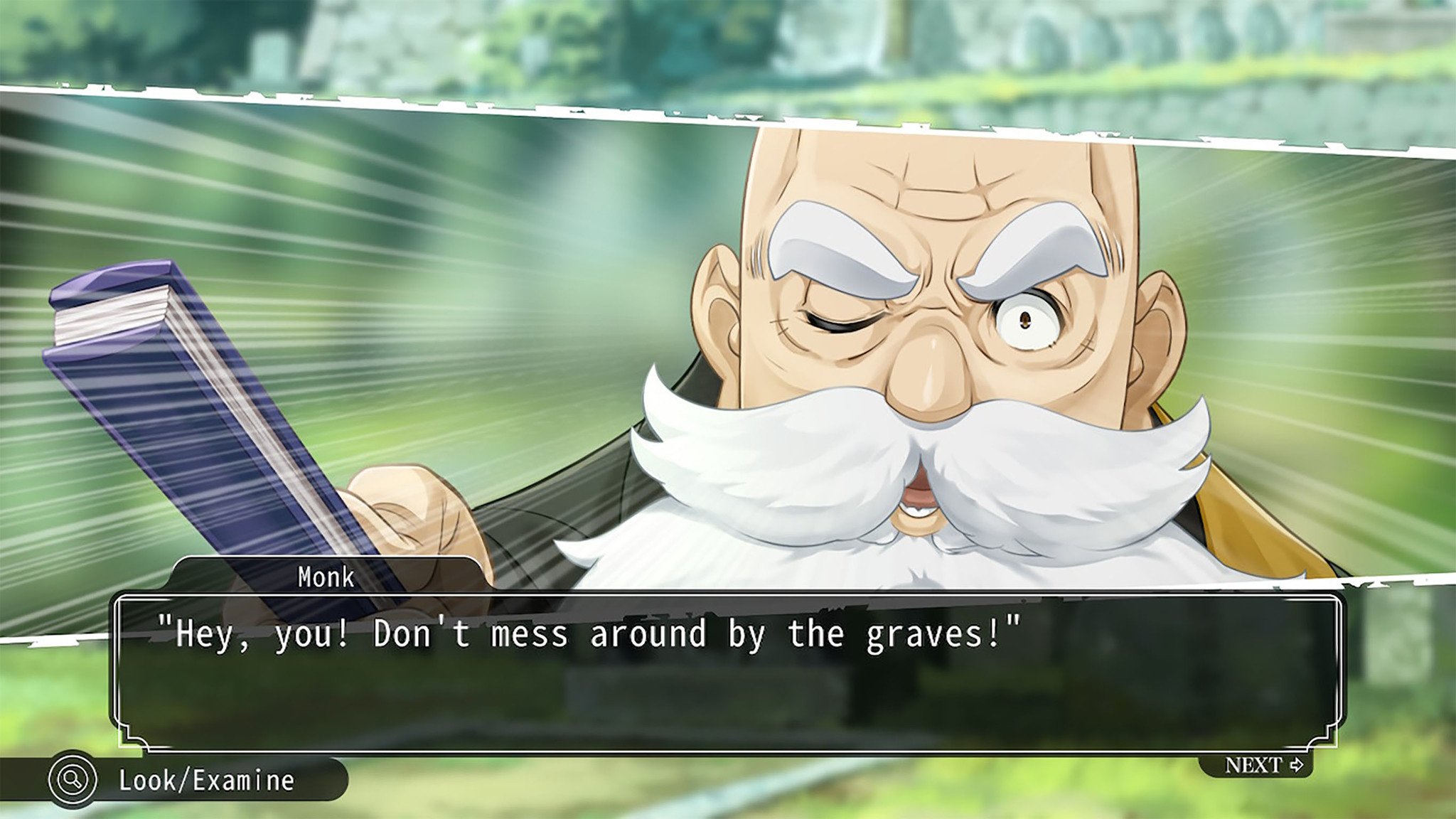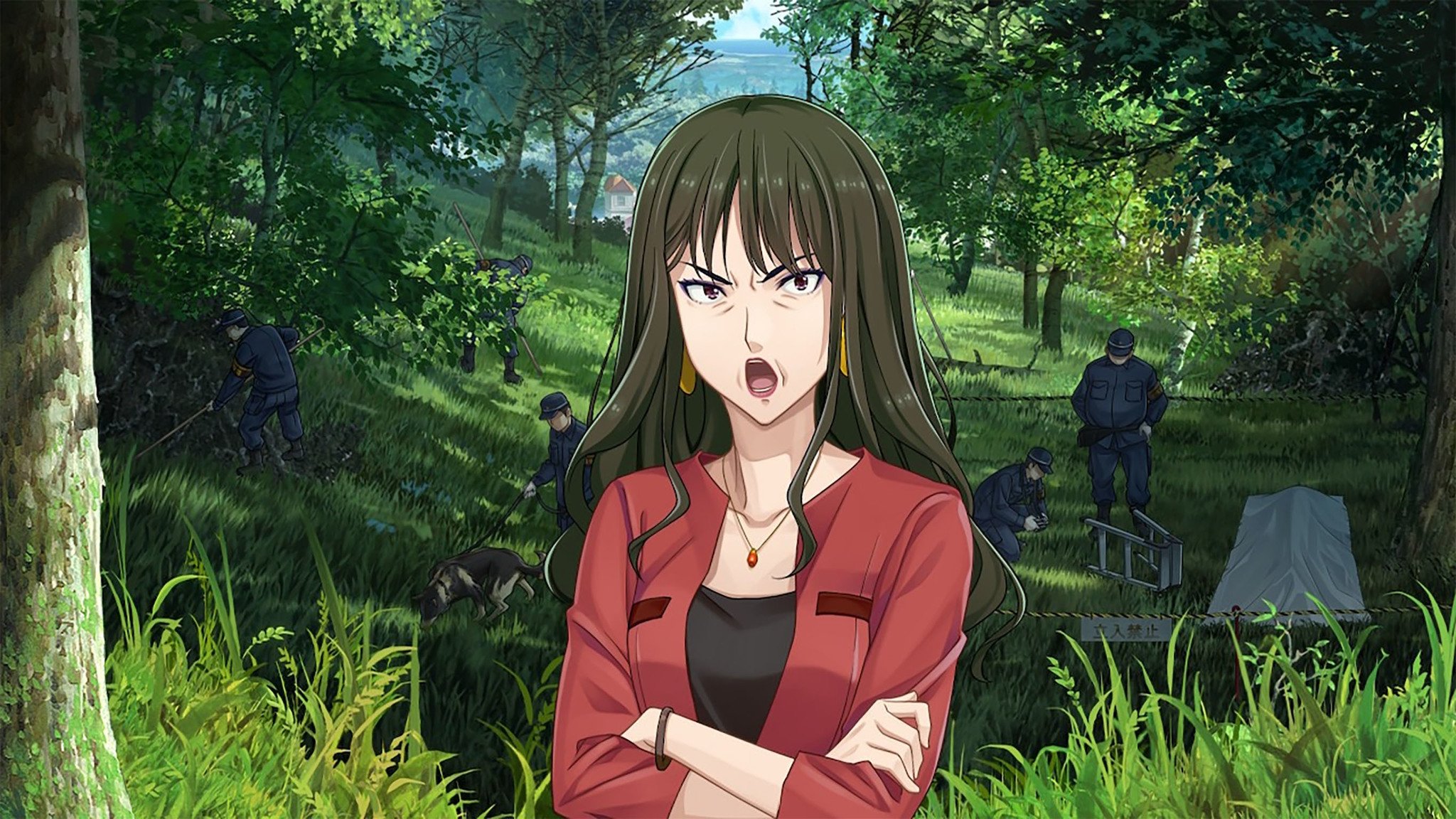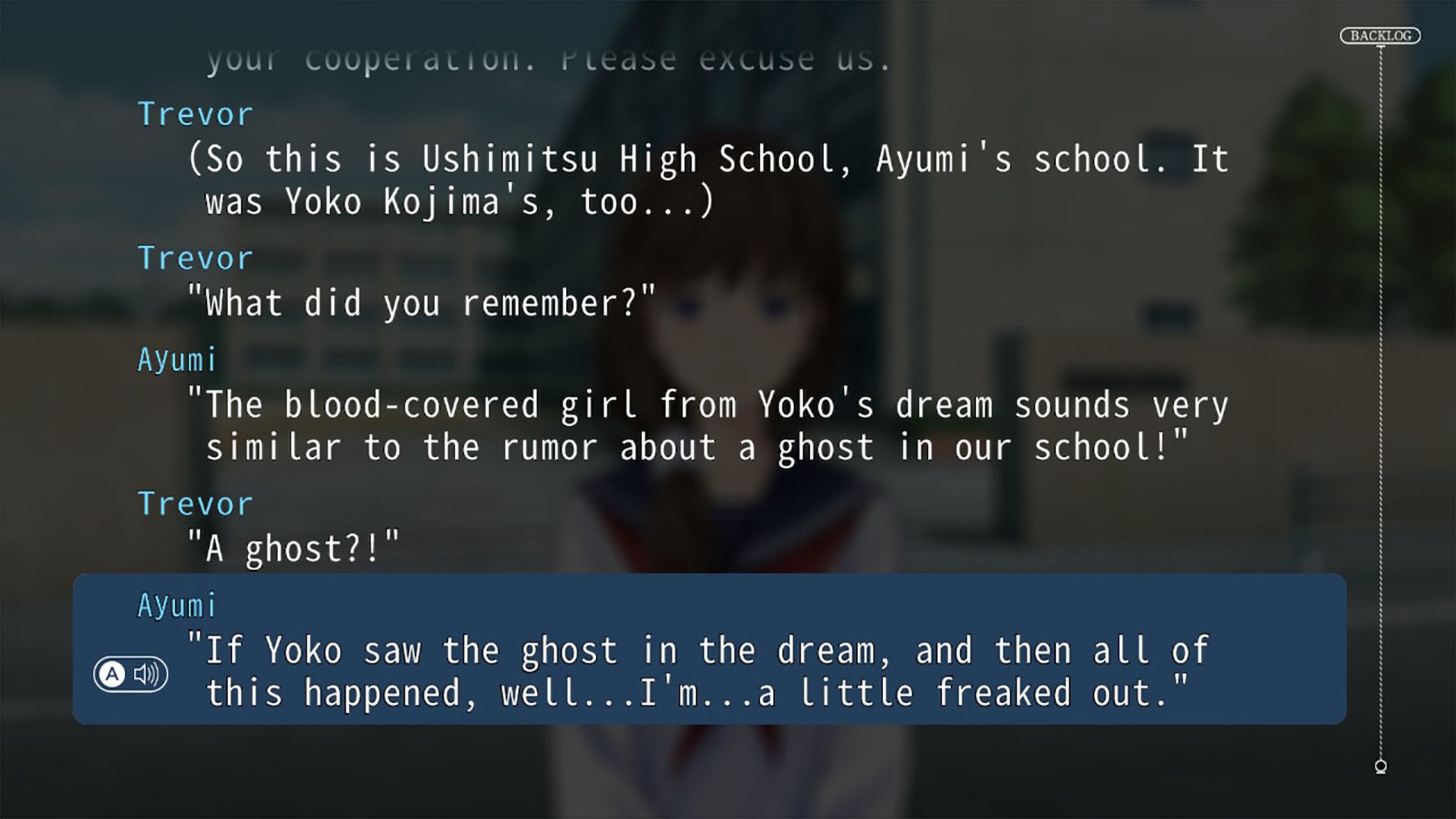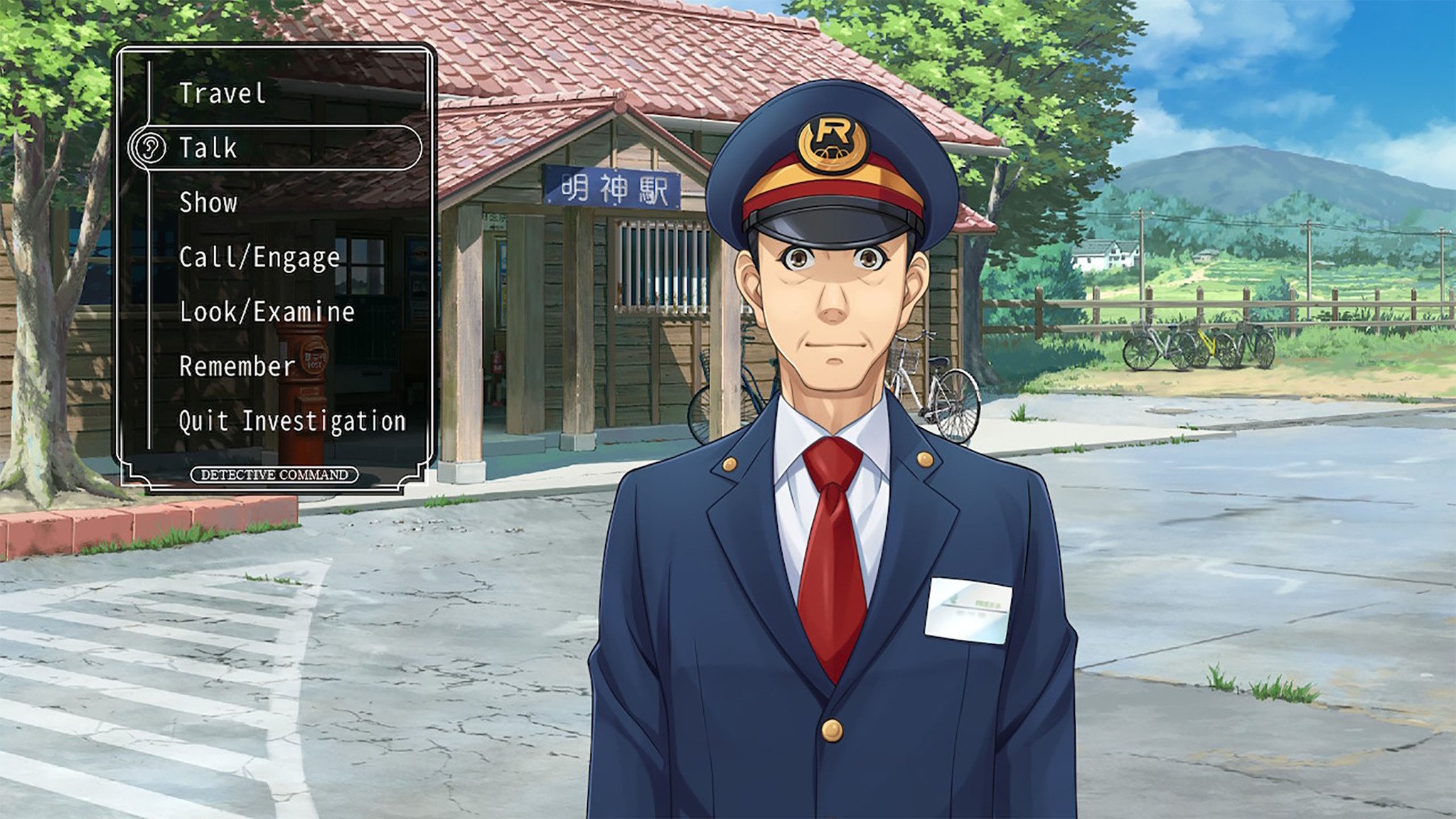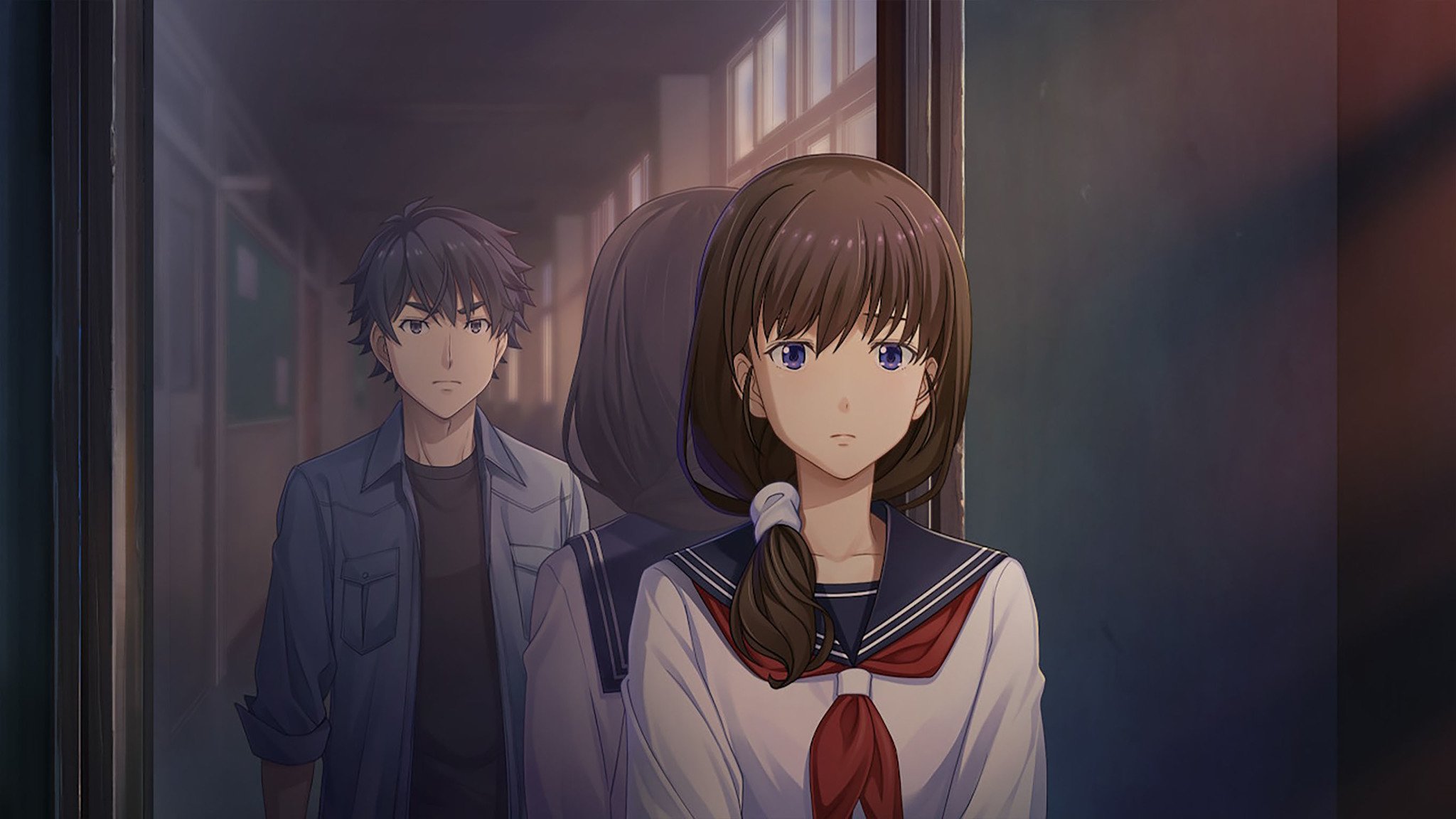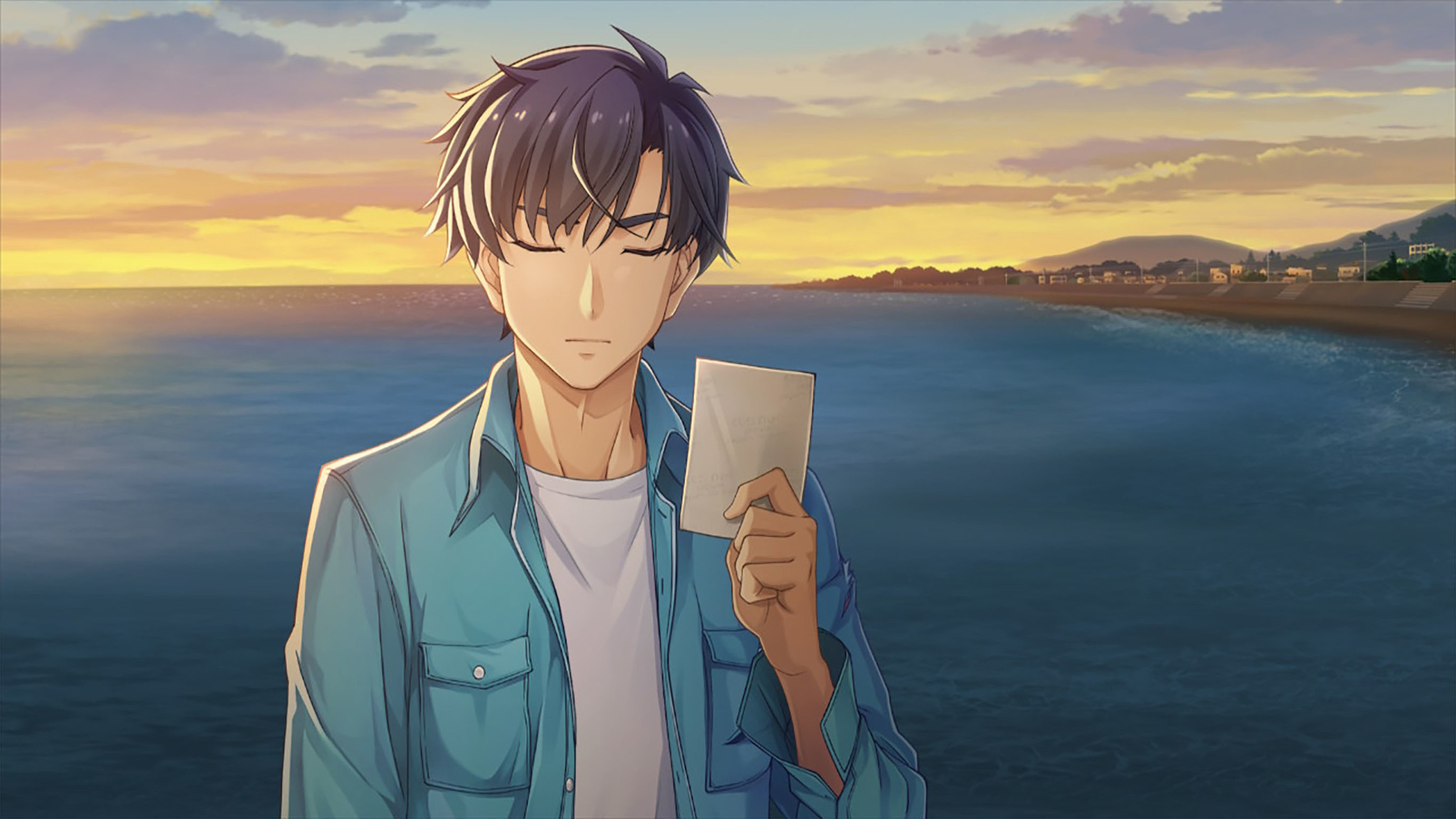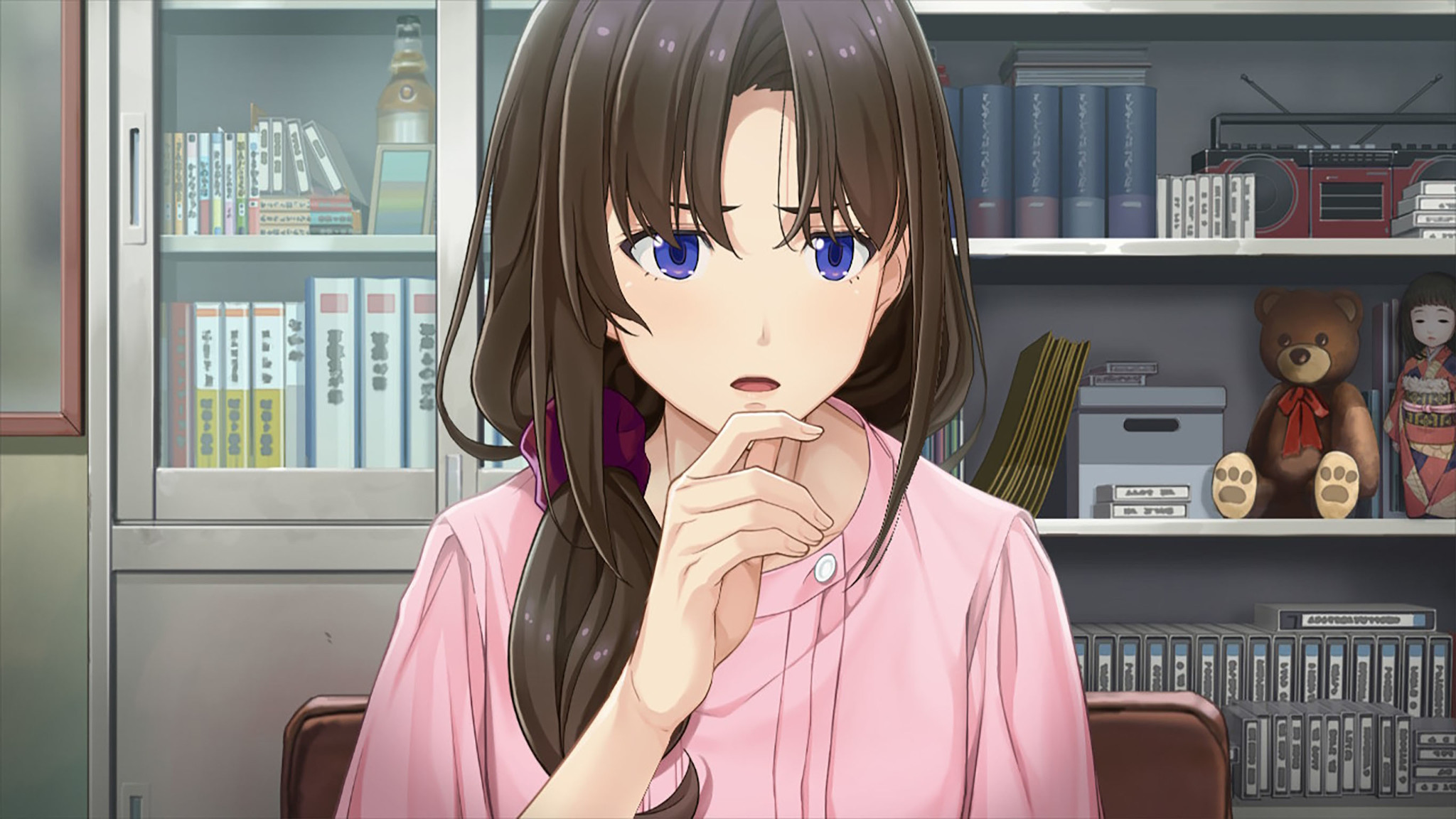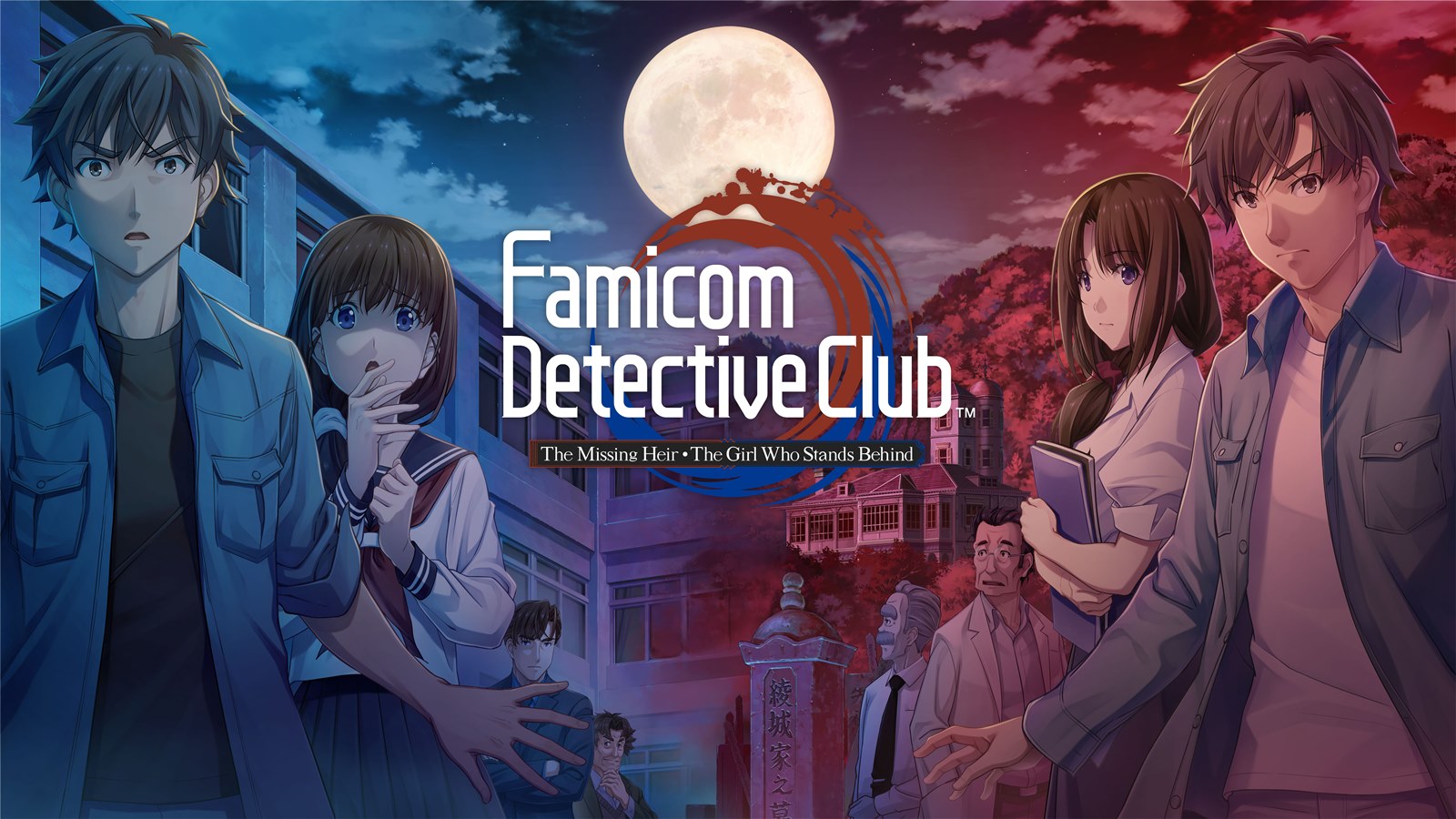iMore Verdict
Bottom line: The Famicom Detective Club games are gorgeous to look at and provide interesting supernatural mysteries for you to uncover. If you like manga, anime, or murder mysteries, these interactive visual novels will be right up your alley.
Pros
- +
Beautiful 2D artwork
- +
Supernatural mysteries
- +
Full Japanese voice acting
- +
English Subtitles
- +
Original and updated soundtrack
Cons
- -
No English voice acting options
- -
Some actions don't feel intuitive
You can always trust iMore.
Famicom Detective Club: The Missing Heir and Famicom Detective Club: The Girl Who Stands Behind are two remakes of classic games originally only released in Japan on the Family Computer Disk System in 1988. Thirty-three years later, they've been remade for Nintendo Switch with upgraded visuals, full Japanese voice acting, and updated music.
You play as a 17-year-old boy who works at a detective agency and takes cases that deal with the supernatural. In The Missing Heir, you learn about the curse of the wealthy Ayashiro family. It's up to you to determine not only if the sudden death of Kiku Ayashiro was actually a murder but also if she has risen from the grave to avenge herself. The Girl Who Stands Behind mostly takes place at a high school where the protagonist must uncover the murderer of student, Yoko Kojima. There might even be a connection to the legend of the bloody female specter that's rumored to haunt the school.
In order to uncover the truth behind both cases, players must examine environments for clues, ask witnesses the right questions, and interact with various items. I love a good "who dunnit" story so I was eager to jump into both of these games. The mysteries themselves are rather good, but it does take a while for the games to catch up to your own deductions.
Famicom Detective Club: What you'll like
| Category | New Pokémon Snap |
|---|---|
| Titles | Famicom Detective Club: The Missing Heir Famicom Detective Club: The Girl Who Stands Behind |
| Developer | Nintendo |
| Publisher | Nintendo |
| Genre | Adventure, Simulation |
| Game Size | TMH: 1.6 GB TGWSB: 1.9 GB |
| Play Time | 14-15 hours (each) |
| Players | Single |
| Format | Download |
| Launch Price | $60 (together) $35 each (separately) |
Both Famicom Detective Club games have gorgeous art styles and animation direction, which made them absolute delights to play. Each scene is lightly animated whether it be a character who's running or simply standing in front of you and breathing. I also appreciated that action-packed moments, which utilized techniques similar to manga, with panels and excitement lines giving them dramatic effect.
I was happy to find that the games have full voice acting in Japanese. Unfortunately, there aren't any English voice acting options, but there are English subtitles for you to read along with. I prefer it this way as the stories themselves are heavily rooted in Japanese culture. However, accessibility-wise, not having English voice acting is definitely an issue.
Plot and tone
In each game there's one complex mystery to solve. You name the protagonist and then need to make guesses as to how things played out given the clues you've gathered or the interviews you've conducted. Both are satisfying to unfold and make sense with the clues you're given. If you're paying attention, you'll be able to deduce what happened and how it happened before the characters themselves figure it out. I much prefer that to a story that pulls the ending out of nowhere just for a surprise twist. The only issue here is that sometimes it can take the Famicom characters a bit too long to catch up (more on that to come).
There's a lot of information to gather and plenty of people to talk to. If you accidentally skipped through someone's dialogue, you can check what has been said already by pressing the X button. I ended up using this a lot more often than I thought I would, so I'm happy it was there.
iMore offers spot-on advice and guidance from our team of experts, with decades of Apple device experience to lean on. Learn more with iMore!
Both games are divided into 11 chapters. Each chapter consists of the protagonist arriving at a scene and then choosing how to interact with that location. Typically, players can choose to Talk to someone to ask questions from a list of topics, Call/Engage someone in the area that they aren't already talking to, Show a clue, Look/Examine the area, or Think/Remember something they've learned already. Sometimes asking questions of people in that scene leads to new locations to travel to or new conversation topics being unlocked. Other times, you'll need to ask the same question or take the same action multiple times in a row to get everything you can out of it.
As you ask the right questions, talk to the right people, or examine the right objects in each area, you'll get further in the story. The chapter ends with the protagonist returning to the detective agency to take stock of everything he's learned that day. After you've sorted through the clues you've gathered, the chapter ends, a new one begins, and the process starts all over.
Some of these options feel both more streamlined and more intuitive in The Girl Who Stands Behind. There are fewer unneccessary red herrings to click on and the progression makes more sense so you can move further along in the story faster.
There are a lot of visual novels on Nintendo Switch, but some don't let you interact with the story as well as others. Both Famicom games are overall fairly interactive, although you don't really make story-altering decisions in either game. However, there are a few choices afforded to you in The Girl Who Stands Behind that makes the plot feel a little more open. Players also get to examine every scene they encounter and sometimes this leads to finding valuable clues you need to move on with the story.
One thing to note: These are not exactly games for children. Some of the visuals were more gruesome than I expected, but without getting really intense. There's also some mild language and smoking throughout. I also found that both Famicom Detective Club games were creepy, though neither one really gets that extreme. I will say that I found The Girl Who Stands Behind a lot creepier than The Missing Heir.
Luckily, both games interrupted the heavy atmosphere with comedic moments. Some things worked better than others, but they did pull a smile to my lips a few times.
Order to play them in
The Missing Heir was the first to release but The Girl Who Stands Behind is actually a prequel to the first game. As such, you can play them in either order. Just note that the games do operate a little differently from each other. Additionally, you'll pick up on more Easter eggs if you play The Missing Heir first.
I truly did enjoy playing both games and suggest people play The Missing Heir first and then The Girl Who Stands Behind second. However, If you really only want to purchase one of them, I'd recommend The Girl Who Stands Behind. It has a spookier vibe to it, there are more interactive parts, and, in my opinion, the interface/mechanics work better than the first game.
Famicom Detective Club: What you won't like
Being a visual novel, this game can't move on to the next scene unless you trigger the correct combination of decisions to do so. There are times when the choices you need to take are not intuitive at all, which leaves you feeling stuck when you've already determined where you need to go next. As such, you'll end up mashing buttons to make the right decisions instead of making intelligent decisions.
Additionally, I was able to figure out what happened and how it happened in both games about halfway through my playthroughs, so it took much longer for the characters to catch up to me. In that way, it felt like the stories dragged on a bit. However, there were plenty of beautiful scenes and interesting developments along the way to make both journeys worthwhile.
Famicom Detective Club: Should you play them?
If you like anime, manga, and murder mysteries these games will be right up your alley. The artwork is so beautiful to look at and each scene is lightly animated to make you feel like you're reading manga or watching a show. The mysteries themselves play out in interesting ways and there's a decent amount of humor thrown in with the mild horror to balance everything out for a good time.
I really suggest you play both, but if you're only going to play one, I personally think The Girl Who Stands Behind is the better of the two.
My biggest issue with these games is that they hold your hand way too much. The characters can take a while to catch up to theories that you have deduced, which can make the plots feel like they're dragging on. There are also times when the only way to move on from a scene is to press the right buttons, but this isn't always intuitive. You might have to randomly make selections instead of making intelligent decisions before you trigger the correct combination to move on.

Gaming aficionado Rebecca Spear is iMore's dedicated gaming editor with a focus on Nintendo Switch and iOS gaming. You’ll never catch her without her Switch or her iPad Air handy. If you’ve got a question about Pokémon, The Legend of Zelda, or just about any other Nintendo series check out her guides to help you out. Rebecca has written thousands of articles in the last six years including hundreds of extensive gaming guides, previews, and reviews for both Switch and Apple Arcade. She also loves checking out new gaming accessories like iPhone controllers and has her ear to the ground when it comes to covering the next big trend.
